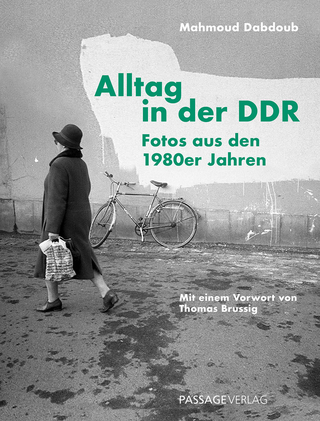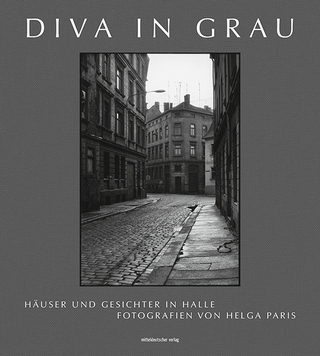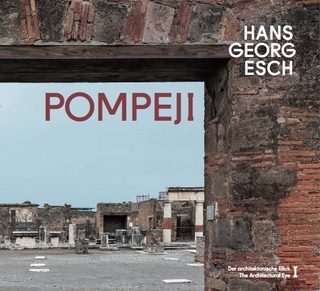
Demokratie bauen
Seiten
2024
|
1. Auflage
M Books (Verlag)
978-3-944425-33-7 (ISBN)
M Books (Verlag)
978-3-944425-33-7 (ISBN)
- Noch nicht erschienen (ca. Januar 2025)
- Versandkostenfrei
- Auch auf Rechnung
- Artikel merken
Fertiggestellt im Jahre 1894, erlebte das Reichstagsgebäude in Berlin die Extreme des 20. Jahrhunderts: aristokratische Machtfülle, Staatsstreich, Beinahe-Zerstörung durch Attentate und Krieg, Teilsprengung als Ruine, Wiederentdeckung und Neuinterpretation – ein Haus mit vielen Gesichtern.
"Demokratie Bauen" widmet sich der wechselvollen Bau- und Nutzungsgeschichte dieses geschichtsträchtigen Hauses und ihrer vielfältigen Verknüpfung mit dem gesellschaftlichen Zeitgeist, die in fast 130 Jahren in gebauter und ideeller Form auf das Gebäude eingewirkt hat und in der 30 Tafel umfassenden Zeichnungsserie „Der Reichstagszyklus“ des Herausgebers Sebastian Felix Ernst dargestellt wird, die seit Herbst 2023 als Teil der Kunstsammlung des Deutschen Bundestags im Foyer des Reichstagsgebäudes installiert ist.
Die Quellenkapitel collagieren Archivmaterial und textliche Fragmente, die im künstlerischen Entstehungsprozess der Tafeln eine entscheidende Rolle gespielt haben. Von den Anfängen des deutschen Parlamentsgebäudes bis zur Jahrtausendwende werden Konstruktion und Bauprozess sowie der sich wandelnde politische Kontext der Bauaufgabe vergleichend betrachtet. Die Architektur spielt bei der Verhandlung der Machtinszenierung des Parlaments eine bedeutende Rolle. In der vorliegenden Untersuchung werden Protagonisten und Prozesse gleichermaßen beleuchtet. Denn die langwierigen und teils verworrenen Entscheidungsprozesse der Architekturwettbewerbe, das Spannungsfeld aus gestalterischem Willen der Architekten und politischem Selbstverständnis der Bauherrschaft schrieben sich stets in die Materie des Reichstagsgebäudes ein. So offenbart ein genauer Blick auf die Architektur auch eine Geschichte der politischen Selbstfindung. Completed in 1894, the Reichstag building in Berlin bears witness to the age of extremes that was the 20th century: the might of the aristocracy, a coup d’état, near-destruction in deliberate attacks and in warfare, partial demolition of its ruins, rediscovery and reinterpretation. The Reichstag building has many faces.
"Building Democracy" explores the story of this historic building and its construction and use – the many twists and turns of history, the diverse connections with the Zeitgeist, the prevailing mood within society. It looks at how this has shaped and influenced the conceptual underpinnings and the architecture of the parliamentary building over almost 130 years of its existence – a story which is retold in the series of 30 panel drawings comprising the 'Reichstag Cycle' by the editor of this volume Sebastian Felix Ernst that is part of the art collection of the German Bundestag since fall 2023 and installed in the foyer of the Reichstag building.
The chapters on sources are a collage of archive material and text fragments that were vital to the creative process behind the panels’ production. The Reichstag’s architecture, construction and the ever-changing political context of the commissioning process are compared in an exploration spanning the period from the German parliamentary building’s earliest days until the turn of the millennium. When the mise-en-scène of parliamentary power is debated, architecture plays a significant role. The study sheds light on both the protagonists and the processes. The lengthy and often convoluted decision-making on the outcome of architectural competitions, but also the tension between the architects’ creative visions and the political selfperception of those responsible for commissioning have inevitably left their mark on the substance of the Reichstag building. A detailed examination of the architecture thus reveals a story of political self-discovery.
"Demokratie Bauen" widmet sich der wechselvollen Bau- und Nutzungsgeschichte dieses geschichtsträchtigen Hauses und ihrer vielfältigen Verknüpfung mit dem gesellschaftlichen Zeitgeist, die in fast 130 Jahren in gebauter und ideeller Form auf das Gebäude eingewirkt hat und in der 30 Tafel umfassenden Zeichnungsserie „Der Reichstagszyklus“ des Herausgebers Sebastian Felix Ernst dargestellt wird, die seit Herbst 2023 als Teil der Kunstsammlung des Deutschen Bundestags im Foyer des Reichstagsgebäudes installiert ist.
Die Quellenkapitel collagieren Archivmaterial und textliche Fragmente, die im künstlerischen Entstehungsprozess der Tafeln eine entscheidende Rolle gespielt haben. Von den Anfängen des deutschen Parlamentsgebäudes bis zur Jahrtausendwende werden Konstruktion und Bauprozess sowie der sich wandelnde politische Kontext der Bauaufgabe vergleichend betrachtet. Die Architektur spielt bei der Verhandlung der Machtinszenierung des Parlaments eine bedeutende Rolle. In der vorliegenden Untersuchung werden Protagonisten und Prozesse gleichermaßen beleuchtet. Denn die langwierigen und teils verworrenen Entscheidungsprozesse der Architekturwettbewerbe, das Spannungsfeld aus gestalterischem Willen der Architekten und politischem Selbstverständnis der Bauherrschaft schrieben sich stets in die Materie des Reichstagsgebäudes ein. So offenbart ein genauer Blick auf die Architektur auch eine Geschichte der politischen Selbstfindung. Completed in 1894, the Reichstag building in Berlin bears witness to the age of extremes that was the 20th century: the might of the aristocracy, a coup d’état, near-destruction in deliberate attacks and in warfare, partial demolition of its ruins, rediscovery and reinterpretation. The Reichstag building has many faces.
"Building Democracy" explores the story of this historic building and its construction and use – the many twists and turns of history, the diverse connections with the Zeitgeist, the prevailing mood within society. It looks at how this has shaped and influenced the conceptual underpinnings and the architecture of the parliamentary building over almost 130 years of its existence – a story which is retold in the series of 30 panel drawings comprising the 'Reichstag Cycle' by the editor of this volume Sebastian Felix Ernst that is part of the art collection of the German Bundestag since fall 2023 and installed in the foyer of the Reichstag building.
The chapters on sources are a collage of archive material and text fragments that were vital to the creative process behind the panels’ production. The Reichstag’s architecture, construction and the ever-changing political context of the commissioning process are compared in an exploration spanning the period from the German parliamentary building’s earliest days until the turn of the millennium. When the mise-en-scène of parliamentary power is debated, architecture plays a significant role. The study sheds light on both the protagonists and the processes. The lengthy and often convoluted decision-making on the outcome of architectural competitions, but also the tension between the architects’ creative visions and the political selfperception of those responsible for commissioning have inevitably left their mark on the substance of the Reichstag building. A detailed examination of the architecture thus reveals a story of political self-discovery.
| Erscheinungsdatum | 02.04.2024 |
|---|---|
| Zusatzinfo | Illustrationen |
| Verlagsort | Weimar |
| Sprache | englisch; deutsch |
| Maße | 200 x 300 mm |
| Einbandart | kartoniert |
| Themenwelt | Kunst / Musik / Theater ► Fotokunst |
| Technik ► Architektur | |
| Schlagworte | Beichtstühle • Berlin • Demokratie • Deutschland • Europa • Foster • Parlament • Reichstag • Reichstagsgebäude • Rekonstruktion • Umbau • Wahlkabinen • Wallot |
| ISBN-10 | 3-944425-33-2 / 3944425332 |
| ISBN-13 | 978-3-944425-33-7 / 9783944425337 |
| Zustand | Neuware |
| Informationen gemäß Produktsicherheitsverordnung (GPSR) | |
| Haben Sie eine Frage zum Produkt? |
Mehr entdecken
aus dem Bereich
aus dem Bereich
Fotos aus den 1980er Jahren von Mahmoud Dabdoub
Buch | Hardcover (2024)
Passage-Verlag
CHF 36,90
der architektonische Blick : the architectural eye
Buch | Hardcover (2024)
König, Walther (Verlag)
CHF 53,20


